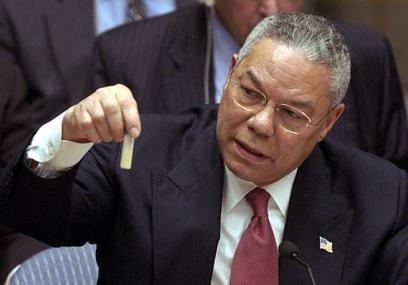How The Two Party System Uses War to Stifle Independent Thought

History bears witness that a government is never more powerful, nor more oppressive than when it is at war. A government at war spends more than one at peace; it violates more of its citizen's civil liberties; it glosses over or even brazenly defies its own laws and charter documents more often and with more impunity; its people are willing to rationalize, accept, or ignore more instances of corruption, incompetence, malfeasance, and waste.
This is because a war is ostensibly a state of emergency, and a good, patriotic citizen is expected to "sacrifice," weather the storm cheerfully, and put up with the abuses of his or her government at war because the abuses and the war are always temporary-- or so say the war hawks-- and always absolutely necessary for the survival and safety of the nation.
But what if war was never temporary? What if a nation was always at war? What if it assumed ever more illegal powers and violated its own citizens' civil liberties without criticism or consequence? What if the new powers, the new agencies, the new abuses, and the unsustainable spending that were all supposed to be temporary never came to an end? What if this nation was not only always at war, but perennially starting new ones without resolving the old ones? What if even after finally resolving a war, its soldiers and military bases remained in theater on the foreign land of now-pacified allies for decades after with no end in sight?
What if this nation was not only involved in multiple wars, but constantly starting multiple different kinds of wars? What if, as this nation's wars increased in number and scope, they decreased in coherence and clarity? What if, instead of defined objectives to eliminate a clear enemy that imminently threatens its people, this nation declared open-ended wars on vague enemies, even on concepts? What if there were a global War on Terror, a War on Drugs, a War on Poverty, a War on Obesity? What if, since the beginning of these wars, problems like terrorism, drug abuse and violence, poverty, and obesity only worsened?
And what if, as this irrational public policy catastrophe of perpetual war spiraled out of control, even into the realm of truly dystopian horror, its proponents became even more entrenched in their support for it, and its critics and whistle blowers derided and attacked in ever more hysterical terms as unpatriotic or even terrorists themselves and enemies of the state? What if all the destruction wrought by these wars was taken as evidence for how necessary it is to continue fighting them, to fight them harder, and to fight even more wars?
What if the special interests that profit from perpetual war also owned the biggest and most influential distributors of news, analysis, and information? What if they used such an awesome position of influence to keep their audience misinformed, afraid, and complacent? What if they distracted and divided them against each other with a contrived game of partisan quarreling just as ineffective and just as never-ending as the wars ravaging this nation's economy, civil liberties, and families?
What if, just as perpetual warfare and its consequences reached an extravagant height of absurdity and destruction, the citizens of this nation started talking to each other about it instead of yelling at each other about the letters next to the names of their elected representatives like the media had taught them to do? What if they turned off the television and started having conversations in online communities and learning from independent sources of news and information?
What if the people of this nation realized they have more in common with their fellow citizens than they thought? What if they decided that whatever disagreements they may have over what should happen, they could at least agree about what needs to stop happening right now, that whatever might be best for their country, an entrenched, two-party, warmongering status quo is certainly not it? What if they started calling their representatives more to demand solutions instead of partisan rhetoric, blame, and excuses? What if they started writing articles themselves and submitting them online to engage others in the conversation? What if they started running for office? What if they started winning?
"The chain reaction of evil--wars producing more wars -- must be broken, or we shall be plunged into the dark abyss of annihilation." -Martin Luther King, Jr.
"Having seen the people of all other nations bowed down to the earth under the wars and prodigalities of their rulers, I have cherished their opposites, peace, economy, and riddance of public debt, believing that these were the high road to public as well as private prosperity and happiness." -Thomas Jefferson
"No protracted war can fail to endanger the freedom of a democratic country." -Alexis de Tocqueville




